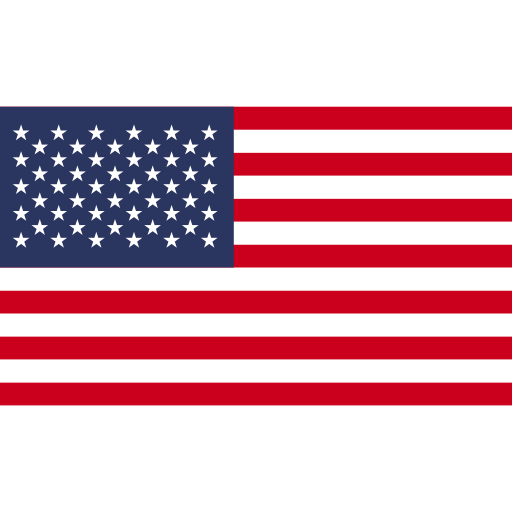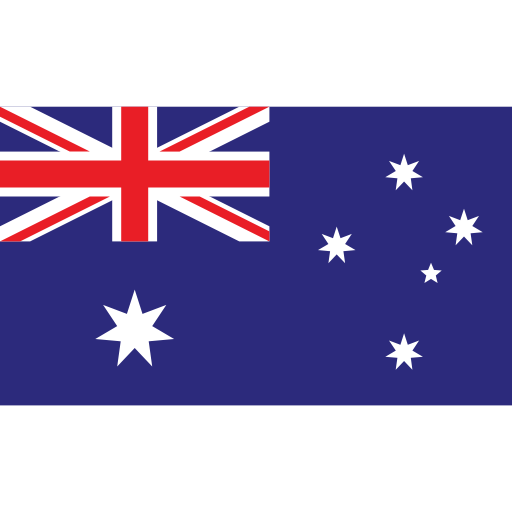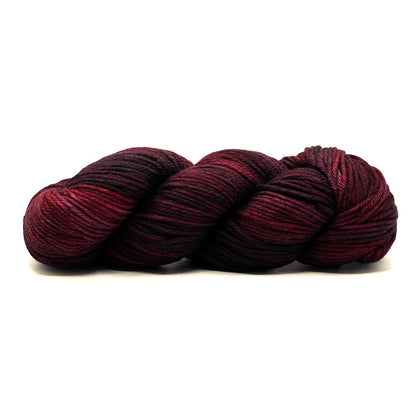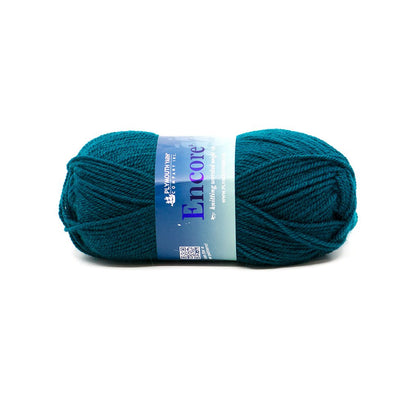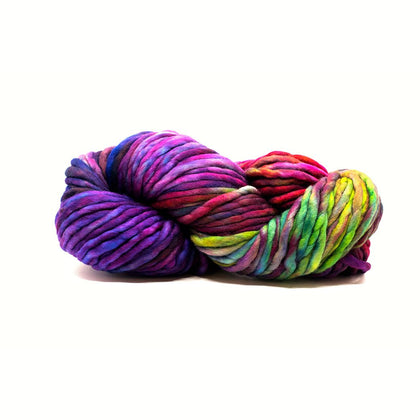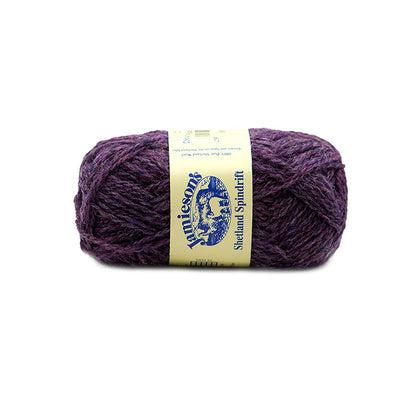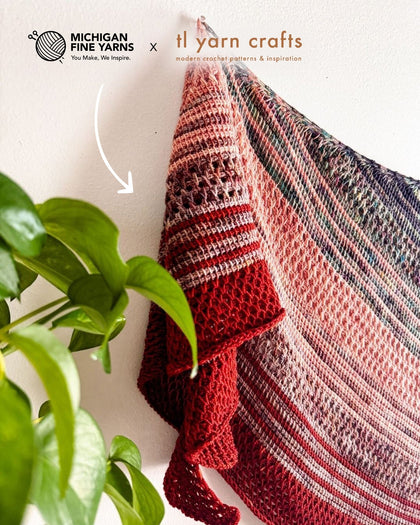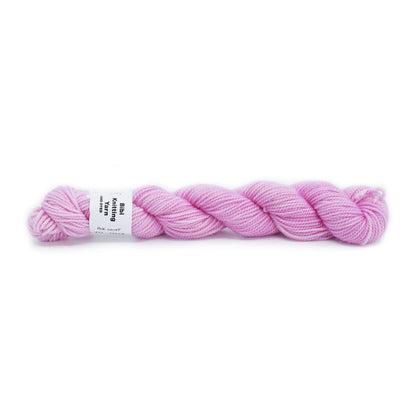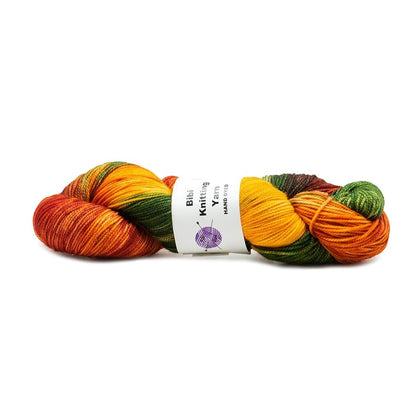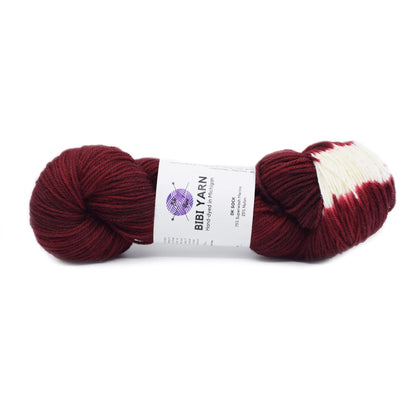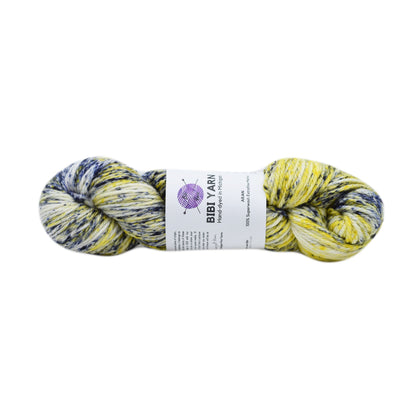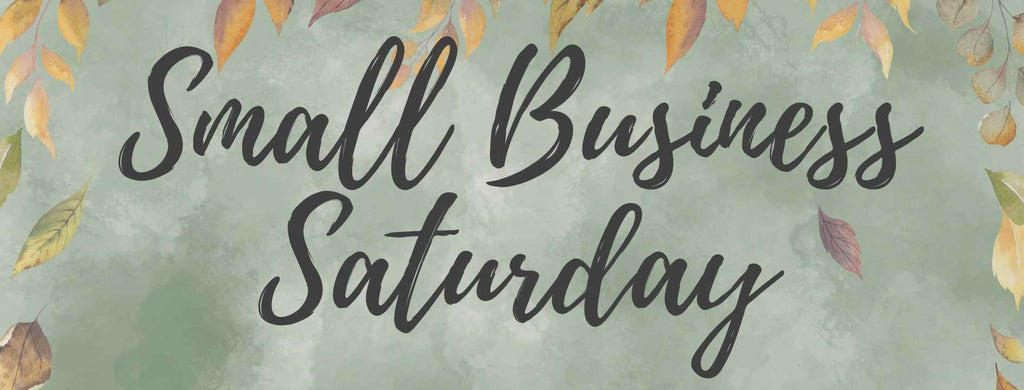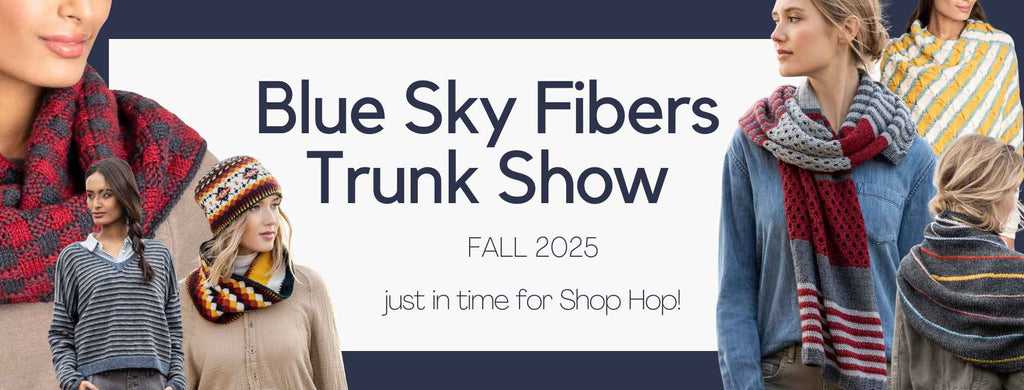Understanding Vegan, Organic & Natural Yarns

Most of us aim to reduce our impact on the environment in some way. Maybe you have reusable grocery bags, compost food scraps or drive a hybrid/electric car. Perhaps you ride your bicycle to work, dutifully take out the recycling or maintain a vegan or vegetarian diet. While these practices may be second nature to you, have you extended this line of thinking to your crafting?
There are a number of ways to support the environment - without sacrificing quality or appearance! - in the world of fiber arts. You’ve probably already seen buzz words like “vegan,” “organic,” and “natural” while you’ve shopped for products. Even if you seek to make ethical choices, though, it can be confusing knowing what’s what, so we’ve broken it down for you below!
Let’s start with some definitions so we’re on the same page before diving a little deeper into each category.

What is vegan yarn?
Vegan yarns are synthetic or plant-based products that contain no animal fibers.
What is organic yarn?
Organic yarns can be made of animal or plant fibers that have been grown to a strict set of standards that eliminate the use of chemicals, hormones, fertilizers, etc.
What is natural yarn?
Natural yarns are those that are not man-made, are minimally processed and do not use chemicals.
So, now that we know that these types of yarns are, let’s look at their qualities and why or when we may want to choose them.

Vegan Yarn
Rationale for utilizing vegan yarn is going to fall in line with choosing to live a vegan lifestyle. While wool is a renewable resource, as with any type of animal farming, raising sheep for their wool creates opportunities for mistreatment. To avoid these potential pitfalls and ensure your yarn doesn’t encourage any negative behaviors, stick to plant based and/or synthetic fibers.
Synthetic yarns have their place and are often used in tandem with animal or plant fibers to bolster the durability of the yarn. These yarns tend to be less expensive than their plant-based counterparts, but the downside is some serious pollution caused from creating these products. They also aren’t as readily biodegradable.
This makes plant fibers the ideal choice for eco- and vegan-friendly crafting. If your first thought is of rough, stiff cotton ideal for kitchen scrubbies, you’re not alone! Luckily, the vegan yarn market has grown and developed some incredible options out of bamboo, tencel (eucalyptus), linen, soy, hemp, even banana! Cottons have also come in a wide variety of softness, drape and utility. Enjoy experimenting with these different fibers to find what works for your style and the types of projects you prefer to create!
If knowing your yarns are animal- and earth-friendly isn’t enough, plant-based fibers are terrific options for anyone with allergies or sensitivity to wool/animal fibers, they don’t pill or felt, there is minimal shrinkage, and they tend to be even longer lasting than their protein-packed cousins. Talk about bonuses!
Check out some of our vegan options like Plymouth Yarns Anne, Louet Euroflax Linen, and Universal Yarns Clean Cotton!

Organic Yarns
Here’s where things start to get sticky. As mentioned, organic yarns can be made from animal or plant fibers. This means that organic yarns can be vegan, but not all vegan yarns are organic. The same is true with yarns made from animal fibers.
To be considered organic, there is a certification process set by the Global Organic Textile Standard. This looks at the entire process from what the animals are eating, to what amendments are made to the soil for growing plants such as cotton or flax.
Cotton is a yarn you’ll often see associated with the term “organic.” The plant is particularly susceptible to a number of pests which means pesticides and other chemicals are frequently and heavily used to ensure a quality harvest. Farmers that want to avoid these practices will often work to the organic standard to ensure their customers know they are purchasing an eco-friendly product.
Another benefit of organic yarns is that they are going to be extra kind to the person wearing anything made from them! Because there are no chemicals involved, organic yarns make fantastic baby projects and gifts for anyone with sensitive skin. Even if you don’t have any particular reaction to non-organic yarns, your hands will probably thank you for the chemical break the next time you pick up an organic fiber!
We carry a number of organic yarns including Appalachian Baby Design, Blue Sky Fibers and Shibui Knits!

Natural Yarns
A sort of middle ground, natural yarns have a low impact on the environment, but may not meet every one of the strict organic standards. These are typically undyed, more rustic feeling products due to reduced processing. Yarns that have been dyed with natural ingredients from turmeric to beets to avocado peels are still considered “natural” and come in a wide variety of colors. What you won’t see with natural yarns are labels like “superwash” as that is a chemical treatment done to yarn to reduce felting and shrinking making it easier to launder.
Natural animal fiber yarns are great for colorwork projects as the felting process can meld colors together as if they were from one skein. They are also more elastic, more breathable and flat out warmer than synthetic products. Without added plastics or chemicals, natural yarns are more fire resistant making them great options for kitchen projects or anything else where heat is prevalent. If you need more reasons to go with natural yarns, Knitting the Natural Way has a thorough chart you can see here!
And, if you're interested in working with some eco-friendly yarns, check out yarns like Ella Rae Cozy Bamboo, Rowan Creative Linen and Cascade Ultra Pima!

Ethical Wool
Wool (we are using “wool” here to simplify, but this is true for all animal fibers) is so prevalent in the fiber arts that it may seem overwhelming to fathom giving up knitting, crocheting or weaving without using wool. There are certainly people and companies out there that are raising their animals humanely and creating products that are cruelty free and environmentally friendly. As with any purchase, we should all do our homework and know what and from whom we are buying. It may take a bit of time up front, but we have a feeling that you’ll love working on - and wearing! - your projects knowing how they came to be.
An easy place to start would be finding local small businesses to support. Family farms with smaller herds are much more likely to have their hands in all aspects of the yarn process from tending to the animals with care, to understanding the cleaning and spinning of the fleece, to dying the skeins. Handspun yarns are going to have some of the lowest impact on the environment, so finding a farm that does their own spinning would be incredible! Consider the ultimate goal as farm to needles.

Are you already selective with which yarns you use? Are you just beginning your journey to understanding where your yarn comes from? We welcome all fiber enthusiasts and would love to hear what yarns you use and why, or what questions you have! Let’s continue the conversation in the comments below!
Sources
Acrylic Yarn Vs. Natural Yarn
Organic Cotton Yarn for Crochet Projects
Synthetics vs. Naturals
Vegan Knitting Guide
Vegan Yarn
What is Organic Yarn?
What is Vegan Yarn?
Why Is Superwash Yarn Not Sustainable?
